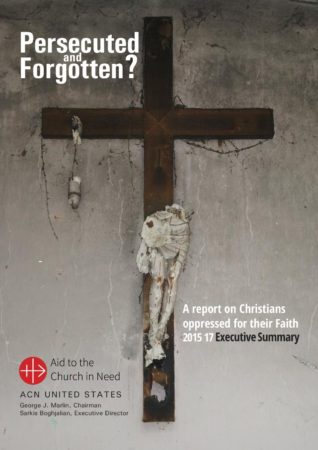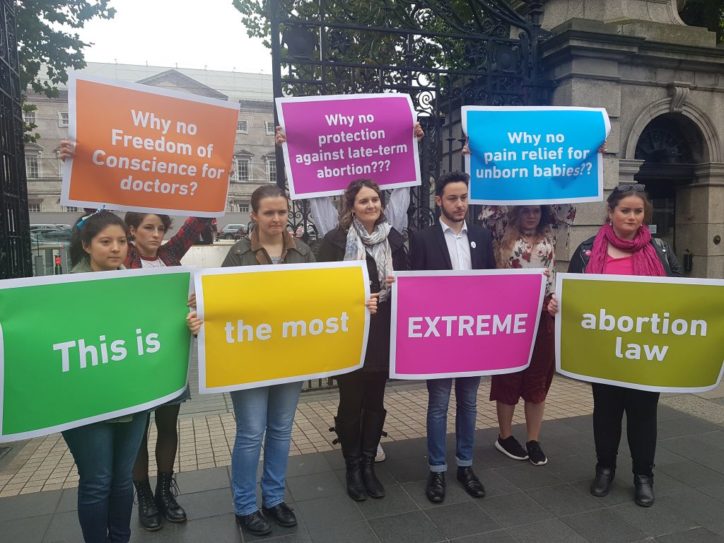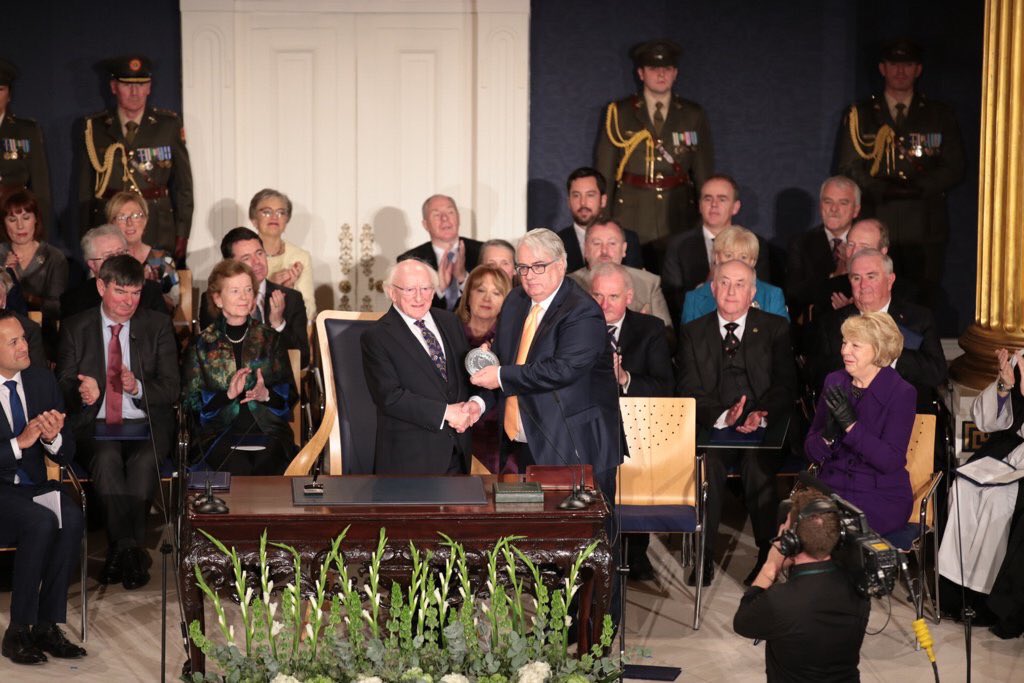
Three hospitals around the country have refused to carry out abortions under the forthcoming new law, according to Peadar Tóibín, the former Sinn Fein TD.
Speaking during a Health Committee meeting last week he said doctors in Kilkenny, Letterkenny and Cavan had decided that they would not offer abortions. He said they told this to Peter Boylan, former head of the Institute of Obstetrics and Gynaecology, who has been been in discussions with maternity units on behalf of the Government. Dr Boylan declined to comment. Since then, when contacted by The Times, Ireland, the hospitals themselves have either made no comment or offered legal responses.
A spokesman for the Ireland East Hospitals Group, which includes Kilkenny, said that “all hospitals [in the group] will comply with the law of the land”. Queries to the hospitals in Letterkenny and Cavan were diverted to the HSE national press office, which said: “The HSE, in consultation with the Department of Health and other stakeholders, is working on developing an implementation plan for the delivery of the termination of pregnancy service by January 1, 2019.”
When asked again if doctors in Letterkenny and Cavan had said that they would not provide such services, the HSE did not comment.
Simon Harris, the Health Minister, appeared undeterred by the apparent refusals, commenting that there had been many claims that hospitals would refuse to offer abortion services when the government passed a law to allow abortions in cases of threatened suicide in 2013.

A medical expert has reported a dramatic increase in cases of gender dysphoria, where people feel that their gender does not match the biological sex of their bodies. Professor Donal O’Shea, consultant endocrinologist at St Columcille’s Hospital in Loughlinstown, Dublin, said that there were 210 cases last year, compared with 10 in 2007, which represents an increase of more than 20 fold.
A decade ago, most cases involved males but that has now balanced out with around the same number of males and females presenting.
He said there is a growing awareness that gender is a spectrum that is not black or white and that people were exploring their gender more now. Some people attempt to transition to a new sex using surgical or hormonal interventions. Nonetheless, he said he has seen patients who transitioned hastily, ultimately regretting the decision after irreversible treatment has taken place.
Under law since 2015, a person can apply for a Gender Recognition Certificate in order to have their preferred gender recognised by the State as their actual sex. To date, 403 certificates have been issued. There is no need for an operation, consultation with a doctor, or hormone treatment. Someone with a woman’s body can be recognized as a man, or vice versa, based only on their say-so.

After months of haggling, GPs and the HSE appear to have settled on a fee of between €400 and €450 for every abortion facilitated under the Government’s brand new GP-led abortion regime. Last night the Irish Medical Organisation and a spokeswoman for the Department of Health said that broad agreement had been reached between the parties at the talks, but that some details would be considered further on Wednesday “when it is hoped that matters can be concluded”.
Under the proposed regime a pregnant mother will visit the GP for an initial consultation and can request an abortion without specifying grounds. If the GP certifies the abortion she will return for a second visit three days later. At that stage the GP can administer the two drugs to abort the pregnancy and end the life of the unborn child. The drug will be given to the woman in the doctor’s surgery and she will not have to go to a pharmacy.
The ‘service’ will be free of charge to patients, with the HSE paying the full fee of €400-€450.
In practice GPs are expected to provide a medical abortion up to nine weeks of pregnancy. Women who are between nine and 12 weeks pregnant will have a surgical abortion in a maternity unit.
However, it has been reported that many maternity units around the country are resisting participating in the regime. The Irish Times claims that their resistance is due to a ‘lack of resources’.

A Pakistani Christian woman’s appeal to Britain for asylum has been denied because her arrival in the country may stir civil unrest, HuffPost UK has been told.
Asia Bibi, a Christian farm labourer, wife and mother of five, was released from prison in Pakistan last week after being acquitted of blasphemy. She had spent eight years on death row after an argument with a group of Muslim women in June 2009.
On Saturday her lawyer, Saif Mulook, fled Pakistan, saying he feared for his life. Bibi’s husband, Ashiq Masih, has also released a video message saying he too fears for his family’s safety.
“I am requesting the Prime Minister of the UK help us and as far as possible grant us freedom,” he said.
But campaigners working to secure Bibi’s move abroad said the UK government had not offered her asylum, citing security concerns. Wilson Chowdhry, chairman of the British Pakistani Christian Association, said: “I’ve been led to believe that the UK government had concerns that her moving to the UK would cause security concerns and unrest among certain sections of the community and would also be a security threat to British embassies abroad which might be targeted by Islamist terrorists. Pakistani Christians have recently suffered violent assaults in the UK from muslim extremists.

Attacks on Christians in India have risen from 150-plus in 2014 to more than 250 already in 2018, according to Alliance Defending Freedom (ADF), which undertakes legal advocacy for religious freedom. “What should worry the Christian community, especially its leadership, is that out of three democratic pillars of India, both government and media are ignoring these seemingly systematic attacks on Christians,” an ADF press statement reads. The third pillar, the judiciary, has more than 200 cases of false allegations of forcible conversion pending in various courts of India, including the Supreme Court, it adds.
“It is a fact that the Christians living in the most populous state of India, Uttar Pradesh, are facing heightened fear of threat to their lives for practicing their faith,” said A.C. Michael, national coordinator of minority affairs for the All India Catholic Union (AICU). Pastors were routinely taken into police custody based on false allegations of forceful religious conversion, he said. “In one such case, on Sept. 13, a Christian who was leading a prayer meeting was beaten up and warned of severe consequences if he continued to pray,” Michael said. “Christians in Jaunpur are in great fear of being attacked and are not even conducting prayers in their own homes.”
Police deliberately approached pastors’ homes late at night to harass them and their families, said a source who requested anonymity. “Picking up pastors and Christian leaders after midnight, keeping them in police custody for 24 hours, is a technique to mentally harass them and to instill fear in them,” the source told Morning Star News.

Both anti and pro-abortion TDs will continue their attempts to amend the abortion legislation when it returns to the Dáil for report stage later this month. Last week the bill passed its committee stage after three days of hearings when over 180 amendments to the bill were considered. Sixteen of those were put by pro-life TDs. Among those rejected were amendments calling for a specific ban on aborting unborn babies with disabilities and disposing of foetal remains in a respectful manner.
Minister for Health Simon Harris accepted just one of the amendments, insisting that voters had backed the referendum on the basis of the draft legislation he published in the spring. The Referendum Commission said that we were voting only on whether to keep or repeal the 8th and not on abortion legislation. He accepted a clause that will mean the operation of the legislation will be reviewed after three years, rather than five. However, Mr Harris has promised TDs from Fianna Fáil and People Before Profit that he was willing to consider some of the amendments which were pro-choice in spirit.
Nonetheless TDs on both sides of the debate say they will seek to reintroduce many of the amendments at the next stage of the legislative process, when the Bill is considered for the final time by the Dáil before moving on to the Seanad, if passed.

Atheist Ireland on Sunday launched a campaign for a secular oath of office so that atheists taking such offices would not have to publicly contradict their beliefs. They have asked that there would be one single oath for all people, rather than a secular and a religious version. Currently, the office of President, judge, and Taoiseach, as well as members of the Council of State require the religious oath.
In 2013 six members of President Michael D Higgins’s Council of State called for the removal of religious elements from the oaths. In 2014 the UN Human Rights Committee called on the State to remove both the religious oaths for public office and the law on blasphemy.
Launching the new campaign, Atheist Ireland chairman Michael Nugent said that the oath excludes conscientious atheists as candidates for offices such as the President.
In order to take office as a President, judge, or Taoiseach, he said atheists “would have to swear a religious oath that would force us to dissemble about our beliefs, and breach our human right to freedom of conscience and belief”.
“We want a referendum to replace these religiously discriminatory oaths in our Constitution, so that all citizens of our Republic can be treated equally regardless of their religious or nonreligious beliefs,” he said.
Such holders of public office “should instead make a single declaration of loyalty to the Irish Constitution, State, and people that does not reveal anything about the person’s religious or nonreligious beliefs”, he said.

A 69-year-old Dutchman has initiated court proceedings to legally reduce his age by more than 20 years. Emile Ratelband argues that if transgender people are allowed to change sex, he should be allowed to change his date of birth because doctors said he has the body of a 45-year-old. His local authority refused to amend his age on official documents so Mr Ratelband’s case has now gone to a court to stake his claim. ‘I have done a check-up and what does it show? My biological age is 45 years,’ he claimed.
The Dutchman argues that he is discriminated against because of his age on a daily basis and that companies are reluctant to hire someone the age of a pensioner as a consultant.
The judge said that he had some sympathy with Mr Ratelband as people could now change their gender which would once have been unthinkable. But the court said there would be practical problems in allowing people to change their birth date and it would mean legally deleting part of their lives.
The court is due to deliver a written ruling within three weeks.

Increasing childcare subsidies would not necessarily lead women back to work as many parents prefer to care for their children at home, research presented to the Economic and Social Research Institute (ESRI) has highlighted. This is a major challenge to Government childcare policy which is funneling ever increasing public resources into institutional daycare.
“We get a sense that many households are in fact very far from changing their mind [about domestic childcare] and no amount of childcare policy is going to change their decision,” Dr Turon told the ESRI. “My estimates seem to suggest we’ve got a fairly small scope for getting more mothers back into the work force by making childcare more accessible.”
The study examined more than 3,200 two-parent British households followed as part of the British Household Panel survey which ran between 1991-2008.
The research revealed an interesting gender disparity: it found the mother was more likely to work part-time and look after the children even if the woman’s earnings were higher than the man’s value before their first child was born.

A group of family doctors has demanded that Minister for Health Simon Harris consults with GPs before legislation providing for a GP-led abortion regime is passed by the Oireachtas. The group of doctors assembled a petition that has been signed by 640 of their colleagues and which expresses concerns with the Government’s plans to have abortions readily available in Irish GP clinics and hospitals by January.
Dr Aisling Bastable accused Mr Harris of ignoring the voice of “mainstream general practice”, and called on Taoiseach Leo Varadkar and the Fianna Fáil leader Micheál Martin to intervene.
Dr Andrew O’Regan said: “Many GPs on the ground do not believe that general practice is the appropriate setting in which to deliver abortion because of the lack of capacity in an already overstretched environment, lack of training and availability of ultrasound and delivering on genuine freedom of conscience,” they said.